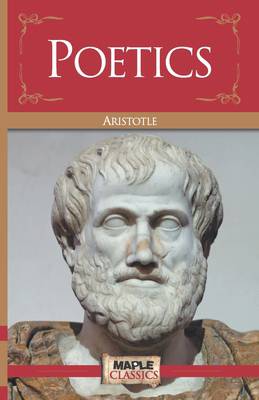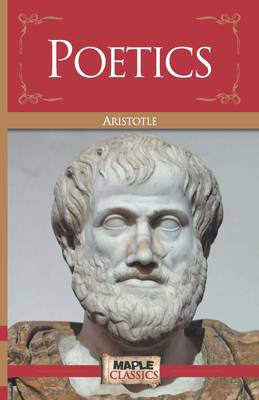
Bedankt voor het vertrouwen het afgelopen jaar! Om jou te bedanken bieden we GRATIS verzending (in België) aan op alles gedurende de hele maand januari.
- Afhalen na 1 uur in een winkel met voorraad
- In januari gratis thuislevering in België
- Ruim aanbod met 7 miljoen producten
Bedankt voor het vertrouwen het afgelopen jaar! Om jou te bedanken bieden we GRATIS verzending (in België) aan op alles gedurende de hele maand januari.
- Afhalen na 1 uur in een winkel met voorraad
- In januari gratis thuislevering in België
- Ruim aanbod met 7 miljoen producten
Zoeken
Omschrijving
"""Every tragedy consists in tying and untying of a knot." A polymath and a philosopher, Aristotle was one of the greatest minds of his time. Aristotle's Poetics, written in 335 BC, is one of the foremost and most notable treatises on Literary Theory and it focuses on the tragic element in drama and poetry. With examples from Aeschylus, Sophocles, and Euripides - the three greatest tragic playwrights, Aristotle explains the six elements of a tragedy which evoke fear and pity in man, thus resulting in catharsis and altered behaviour to avoid a similar fate as the tragic hero. A perusal of Poetics will enhance the understanding of dramatic tragedy and therefore, perceiving classic drama in a new light.""
Specificaties
Betrokkenen
- Auteur(s):
- Uitgeverij:
Inhoud
- Aantal bladzijden:
- 74
- Taal:
- Engels
Eigenschappen
- Productcode (EAN):
- 9789390292875
- Verschijningsdatum:
- 1/12/2020
- Uitvoering:
- Paperback
- Formaat:
- Trade paperback (VS)
- Afmetingen:
- 140 mm x 216 mm
- Gewicht:
- 104 g

Alleen bij Standaard Boekhandel
+ 32 punten op je klantenkaart van Standaard Boekhandel
Beoordelingen
We publiceren alleen reviews die voldoen aan de voorwaarden voor reviews. Bekijk onze voorwaarden voor reviews.









